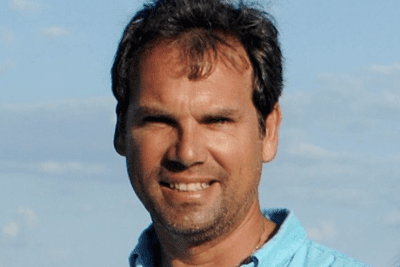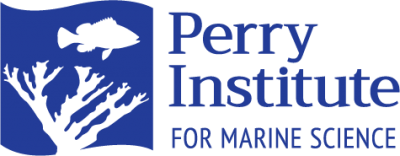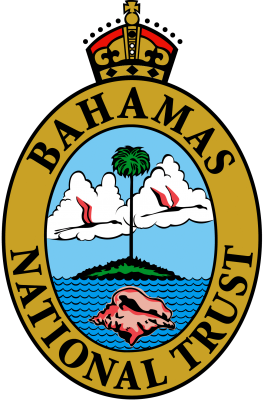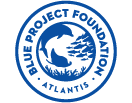Researchers onboard R/V ANGARI traveled to the Bahamas to assess coral reef health by conducting Atlantic and Gulf Rapid Reef Assessments (AGRRA) at several dive sites near South Abaco and East Grand Bahama, including some new survey sites that have never been explored before. The team completed hundreds of surveys of corals, reef fish, and more.
EXPEDITION DETAILS
November 7 – 17, 2018
The Bahamas
Craig Dahlgren
Lily Haines
Agnessa Lundy
Alannah Vellacott
Sandy Voegeli
Liv Williamson
Researchers from the Perry Institute for Marine Science (PIMS), Bahamas National Trust and San Salvador Living Jewels Foundation set out onboard R/V ANGARI to conduct Atlantic and Gulf Rapid Reef Assessment (AGRRA) Surveys for South Abaco and East Grand Bahama. Scientists on board included Dr. Craig Dahlgren, Executive Director of Perry Institute for Marine Science (PIMS); Agnessa Lundy, Marine Science Officer at The Bahamas National Trust and post-grad student at Manchester Metropolitan University; Lily Haines, Research Associate at PIMS and Cape Eleuthera Institute; Alannah Vellacott, Research Assistant at PIMS; Sandy Voegeli, Scientist of San Salvador Living Jewels Foundation; and Liv Williamson, PhD Student at University of Miami’s Rosenstiel School of Marine and Atmospheric Science (RSMAS).
Assessments of reefs such as these are contributing to knowledge of coral reef health around the Bahamas, which helps inform important conservation efforts and policy decisions to aid in coral reef recovery. R/V ANGARI will return to the Abacos in 2019 with PIMS and partnering scientists to survey Central and North Abacos.
Thank you to the Devereaux Ocean Foundation, Atlantis Blue Project Foundation and Disney Conservation Fund for major funding to support the understanding and protection of coral reefs. Also, thank you to Bahamas National Trust and San Salvador Living Jewels Foundation for your commitment to this series of AGRRA surveys.
CHIEF SCIENTIST

Dr. Craig Dahlgren, Director of Perry Institute for Marine Science, is a marine ecologist who studies a wide range of topics related to tropical marine ecosystems. His work includes studies of mangrove and coral reef ecosystems, efficacy of marine protected areas, and population dynamics of fishery species ranging from traditional Caribbean fishery species like Nassau grouper and Caribbean spiny lobster to emerging fisheries like sea cucumbers, parrotfish, sponges, and gorgonians. At present, his work focuses on improving management of and expanding the network of marine protected areas, restoring coral reef and mangrove ecosystems, and improving fishery management for traditional and emerging fishery species in The Bahamas and elsewhere.
“Data collected from recently marine protected areas such as the Lucaya National Park, East Grand Bahama, and Cross Harbour Abaco will be used to assess how coral reefs and species that live on reefs are doing in those areas compared to unprotected reefs. Because the Perry Institute and its partners in the Reef Rescue Network are working to restore corals to several sites surveyed, we can also assess how these efforts are helping coral populations to recover, building healthier coral reef ecosystems” – Dr. Craig Dahlgren, Executive Director of Perry Institute for Marine Science.




